A balanced diet rich in protein, biotin, and vitamins is needed for healthy and strong nails. Keep nails hydrated by applying cuticle oil regularly and minimizing water exposure. Avoid harsh chemicals and excessive nail polish. Gently file nails instead of cutting, and resist the urge to bite them. Remember, patience is key as nail growth takes time.
Your Nails Are Window To Your Health
Often overlooked, your nails can reveal a lot about your health. Healthy and strong nails are not just aesthetically pleasing, they’re a sign of good health. But what does it take to achieve those enviable healthy and strong nails?
Common nail problems like brittleness, peeling, and slow growth can be frustrating. But you can transform your nails from weak to wonderful with the right nail care and attention.
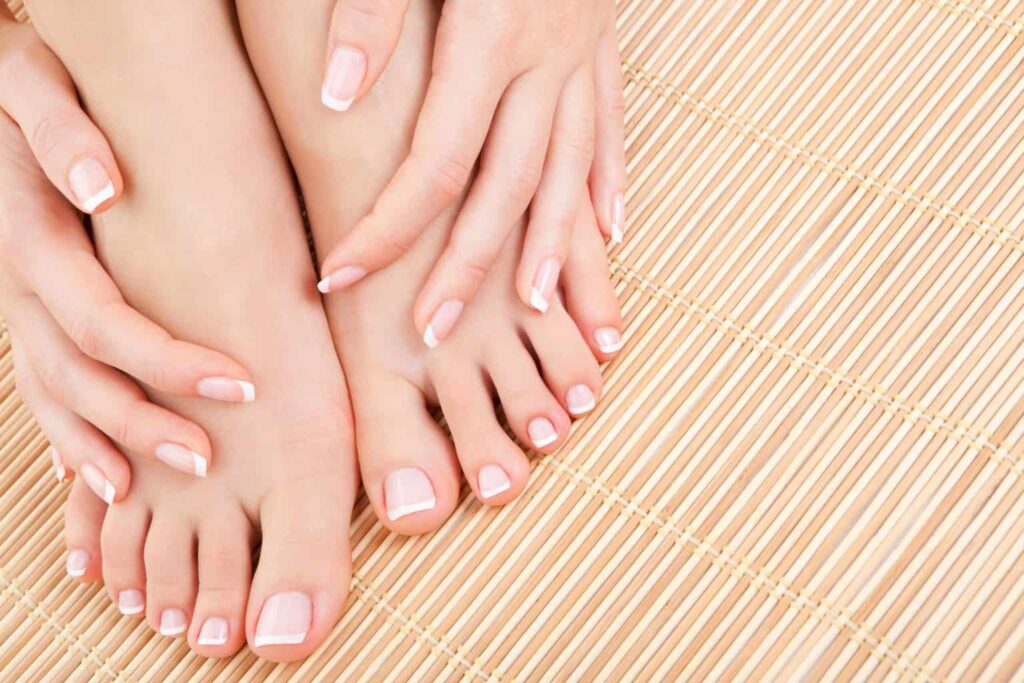
Understand your Nail
To truly understand how to achieve healthy and strong nails, we must understand the basic anatomy of our nail structure. There are four main parts that fingernails are made of:
- Nail Plate: The visible part of the nail which is made of keratin.
- Nail Bed: The skin beneath the nail plate that is rich in blood vessels.
- Cuticle: The protective layer of skin at the base of the nail.
- Matrix: The root of the nail, responsible for growth.
Factors Affecting Nail Health
There are several factors that contribute to the health and appearance of your nails but we will discuss the 5 main culprits:
Diet
A lack of essential vitamins and minerals, such as biotin, iron, zinc, and vitamins A, C, and E, can lead to brittle, weak, or slow-growing nails. These nutrients are crucial for nail growth and repair. Diets high in processed foods and low in fruits, vegetables, and whole grains can deprive nails of vital nutrients.
Genetics
Inherited traits determine the natural shape of your nails, whether they are flat, curved, or spoon-shaped. Genetics influence the thickness and strength of your nails. Some people naturally have thicker, stronger nails, while others may have thinner, more delicate nails. The speed at which your nails grow is also influenced by genetics.
Medications
Certain medications can cause nail changes as an unintended side effect. For example, some chemotherapy drugs can lead to nail thinning or discoloration. Interactions between different medications can sometimes affect nail health.
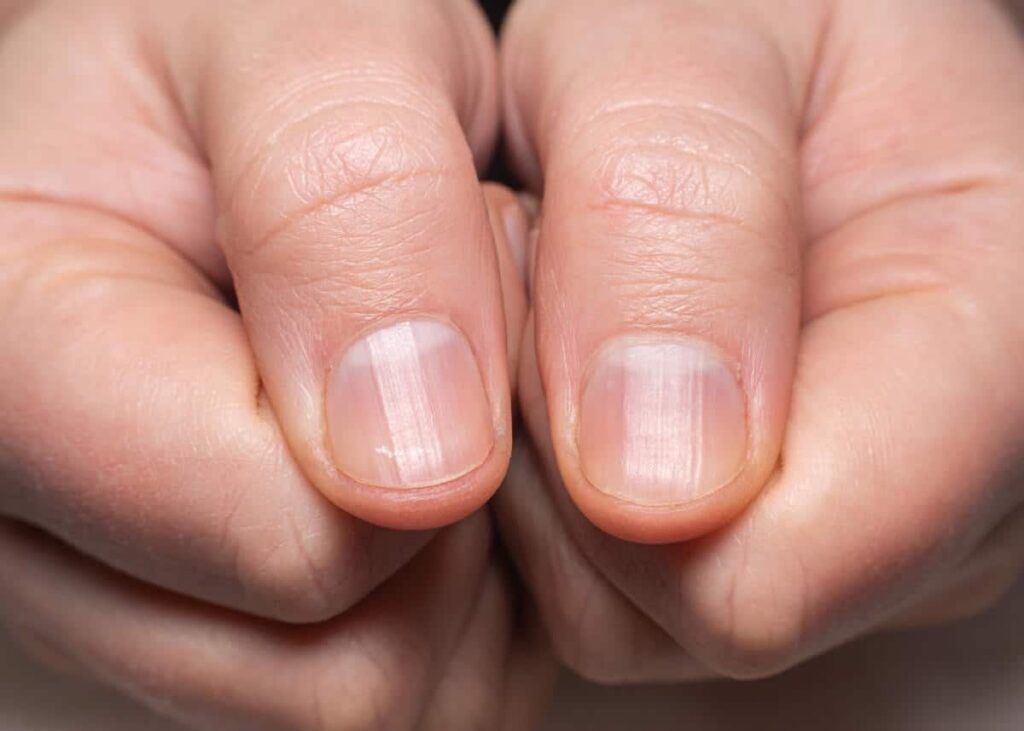
Health Conditions
Conditions like thyroid disorders, psoriasis, fungal infections, and anemia can manifest in nail abnormalities. Some chronic diseases can impact nail growth and appearance due to overall health decline.
Lifestyle Factors
Nail biting and picking habits can damage the nail bed, leading to infections, hangnails, and deformed nails. Frequent exposure to water can dry out nails, making them brittle and prone to peeling. Harsh chemicals found in household cleaners and nail products can weaken nails. Frequent use of acrylic or gel nails can damage the natural nail bed.
Healthy Nails vs. Unhealthy Nails
Understanding the difference between healthy and unhealthy nails is crucial for recognizing potential issues and taking appropriate action. If you notice significant changes in your nail appearance or persistent problems, it’s advisable to consult a doctor to rule out any underlying health conditions.
Healthy Nails
- Appearance: Smooth, even texture; pink and translucent nail bed; consistent shape and thickness.
- Characteristics: Strong, flexible, and growing at a steady pace.
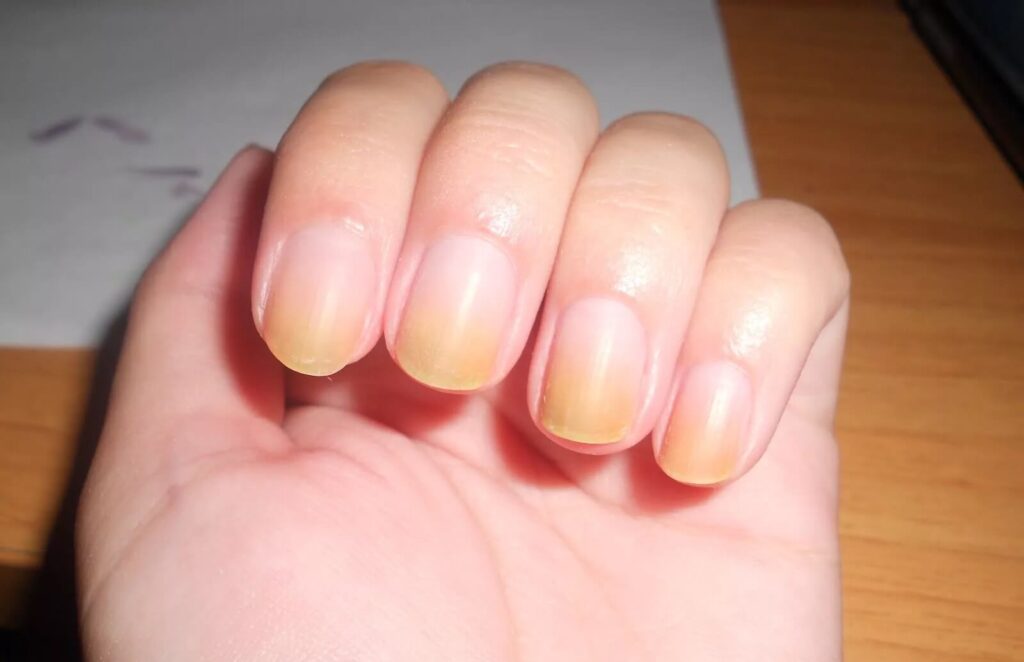
Unhealthy Nails
- Brittle, peeling, or splitting nails
- Discoloration (yellowing, white spots)
- Thickened or ridged nails
- Slow growth
- Nail infections
How To Strengthen Nails
Why do my nails keep breaking? Hey, You’re not alone in wishing for healthy and strong nails. you can strengthen your cracked, brittle nails into healthy and attractive nails with a few simple nail care steps. Let’s uncover the secrets to stronger, healthier nails that you’ll love.
Connection Between Your Diet and Nails
What you eat plays a crucial role in the health and appearance of your nails. Just like the rest of your body, your nails require essential nutrients to grow strong and resilient.
Essential Nutrients for Strong Nails
- Protein: The building block of nails, protein is essential for their strength and structure.
- Biotin: Often referred to as the “hair and nail vitamin,” biotin supports nail growth and prevents brittleness.
- Vitamin C: An antioxidant that helps produce collagen, a vital component of nail tissue.
- Iron: Essential for oxygen transport to cells, including nail cells, preventing nail discoloration.
- Zinc: Contributes to nail repair and growth.
- Omega-3 fatty acids: Promote nail hydration and flexibility.
Food Sources of Essential Nutrients For Your Strong Nails
Incorporating these nutrient-rich foods into your diet can benefit your nail health:
- Protein: Lean meats, poultry, fish, eggs, dairy, legumes, nuts, and seeds.
- Biotin: Eggs, almonds, sweet potatoes, and avocado.
- Vitamin C: Citrus fruits, strawberries, kiwi, bell peppers, and broccoli.
- Iron: Lean red meat, poultry, fish, fortified cereals, spinach, and lentils.
- Zinc: Oysters, red meat, poultry, beans, nuts, and whole grains.
- Omega-3 fatty acids: Fatty fish (salmon, mackerel, tuna), flaxseeds, chia seeds, and walnuts.
Supplements and Vitamins To Strengthen Nails
While a balanced diet is the cornerstone of healthy nails, supplements for nail growth can provide an extra boost of essential nutrients. If you suspect nutrient deficiencies, consider consulting with a healthcare professional to determine if a multivitamin or specific supplement is right for you.
Look for supplements that contain biotin, vitamin C, zinc, and other nail-friendly vitamins and minerals such as vitamin A, vitamin E, iron, and silica. These nutrients work together to support nail growth, strength, and overall health. However, it’s important to remember that supplements should not replace a healthy diet. Always follow the recommended dosage and consult your doctor for personalized advice.
Hands Hygiene and Nail Health
Regular handwashing is essential for preventing the spread of germs, but excessive washing can strip away natural oils, leading to dry, brittle nails. To maintain healthy nails, wash your hands with mild soap, rinse thoroughly, and moisturize afterward for complete nail care.
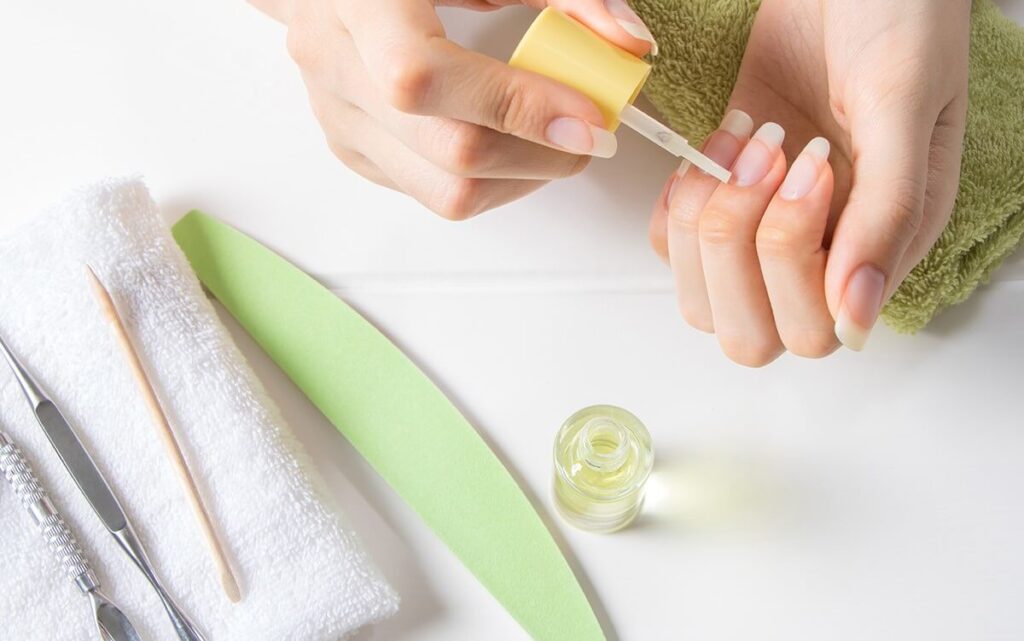
Cuticle Care for Strong Nails
Cuticles act as a protective barrier for your nails, shielding them from bacteria and infections. Maintaining healthy cuticles is crucial for overall nail health. To nurture your cuticles, regularly apply a hydrating cuticle oil or cream. This helps prevent dryness, cracking, and hangnails. After showering, when the cuticles are softened, gently push them back using a wooden orange stick. Avoid cutting your cuticles, as this can increase the risk of infection and disrupt the nail’s natural protective layer. By prioritizing cuticle care, you’ll contribute significantly to the strength, growth, and overall appearance of your nails.
Proper Nail Trimming and Filing for Strong Nails
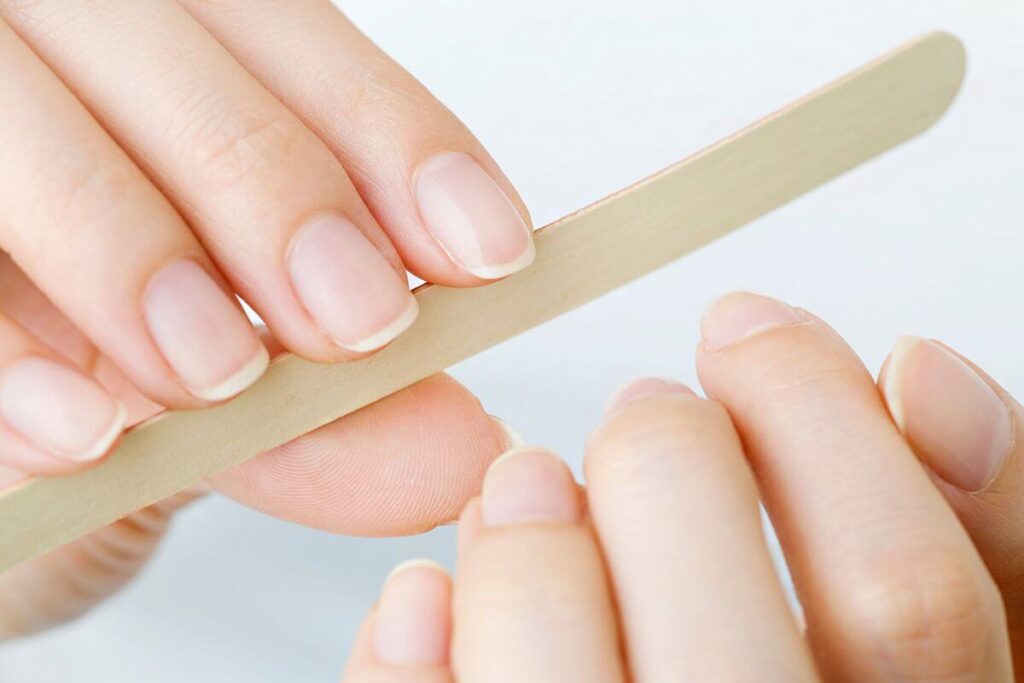
Maintaining the correct nail shape is crucial for preventing breakage and hangnails. Opt for shorter nails, as they are less prone to breakage and easier to maintain. Use sharp nail clippers to trim your nails straight across, avoiding overly short lengths. Gently round the corners with a nail file to prevent snagging. Always file in one direction to avoid weakening the nail. Over filing can thin the nail plate, making it more susceptible to damage, so be gentle and avoid excessive filing. By following these steps, you’ll maintain strong, healthy nails.
Moisturize Nails
Apply hand cream or lotion regularly throughout the day, especially after washing hands. Choose products with hydrating ingredients like shea butter, coconut oil, Beeswax, Ceramides, or aloe vera.
Protect Your Nails From Harmful Habits
Your nails are a reflection of your overall health, and certain habits can significantly impact their appearance and strength. Resist the urge to bite or pick at your nails, as this can lead to infections, hangnails, and deformed nail beds. Additionally, avoid using your nails as tools, as this can cause breakage, splitting, and damage to the delicate nail matrix. By breaking these harmful habits, you’ll pave the way for healthier, stronger nails.
Protect Your Nails from Harsh Chemicals
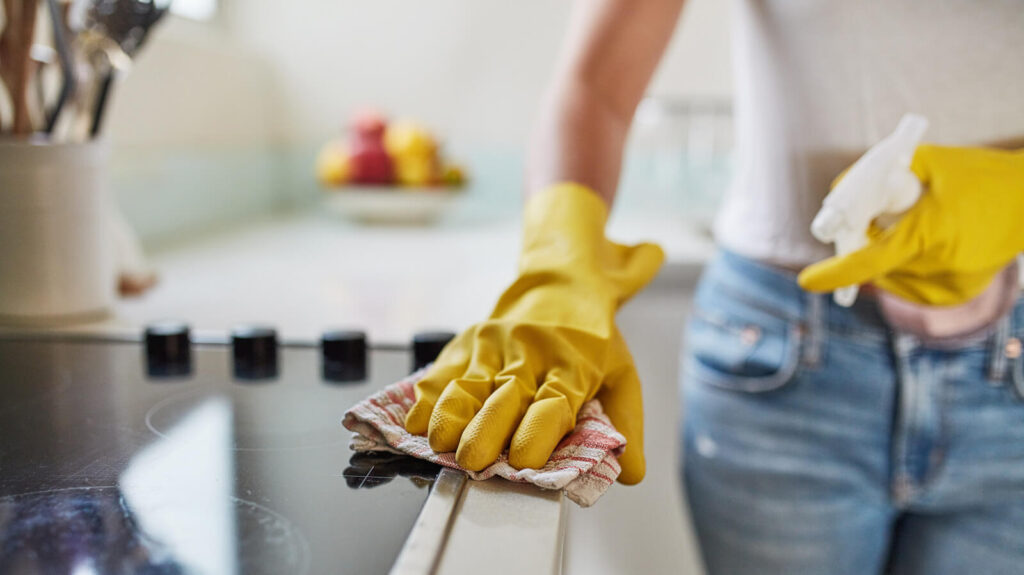
Many household cleaning products contain harsh chemicals that can wreak havoc on your nails, causing dryness, brittleness, and even discoloration. To protect your nails, always wear rubber gloves when handling detergents, bleach, and other chemicals. This simple precaution will save your nails from unnecessary damage and keep them looking their best.
Additionally, be mindful of the products you use for personal care. Some nail polishes and removers contain chemicals that can weaken nails over time. Opt for gentler nail polish and acetone-free nail polish removers. It’s also important to choose shampoos, soaps, and hand washes carefully, as some can be overly drying and harsh on nails. Look for products that are moisturizing and gentle on the hands.
Give Your Nails a Break From Gel and Acrylic Nails
While gel and acrylic manicures offer a glamorous look, they can weaken your natural nails over time.
It’s essential to take breaks from these artificial enhancements to allow your nails to recover and strengthen. Regular breaks help prevent nail thinning, peeling, and breakage. During these periods, focus on nourishing your nails with cuticle oil and strengthening treatments to restore their health and vitality.
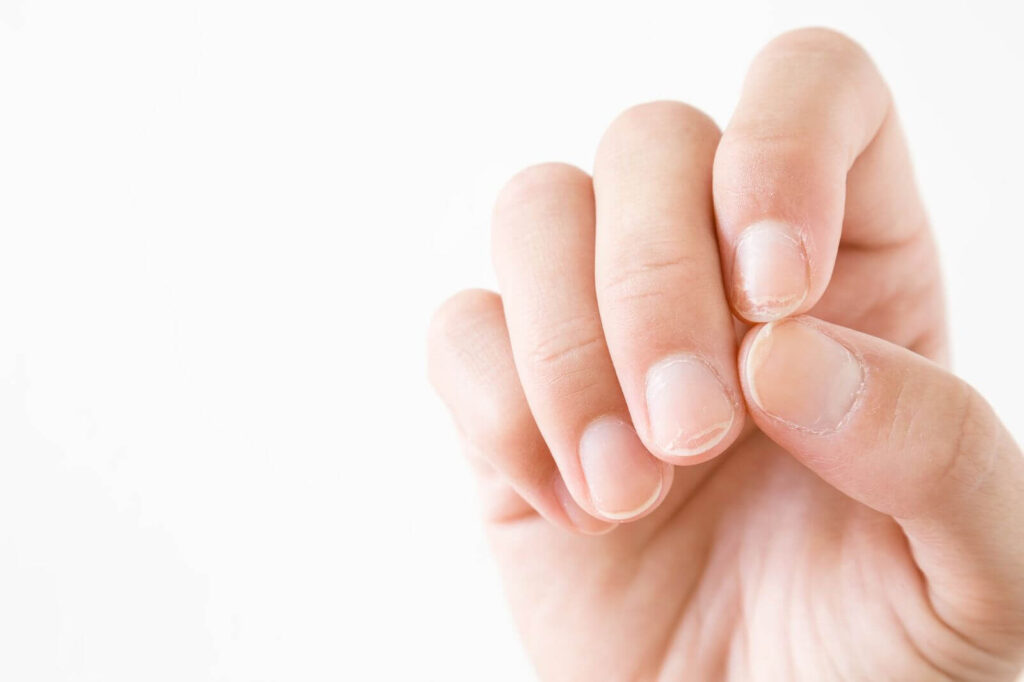
Home Remedies to Strengthen Nails
Nature offers several remedies to nourish and strengthen your nails. Here are some effective options:
- Olive oil: Rich in antioxidants, olive oil helps moisturize and strengthen nails.
- Coconut oil: Known for its hydrating properties, coconut oil can help improve nail flexibility.
- Shea butter: Offers deep moisturization and protects nails from environmental damage.
DIY Masks and Treatments For Nail Maintenance
- Lemon and olive oil: Combine lemon juice with olive oil for a brightening and strengthening treatment.
- Aloe vera gel: Soothing and hydrating, aloe vera can help repair damaged nails.
- Vitamin E oil: Packed with antioxidants, vitamin E oil promotes nail growth and repair.
- Apple Cider Vinegar Rinse: Apple cider vinegar has antibacterial properties and can help balance the pH of your nails. Dilute it with water and soak your nails for
- a few minutes.
Remember, consistency is key when using home remedies for nail care. Regular application will yield better results.
Consult to a Doctor (if applicable)
It’s advisable to consult a dermatologist if you experience:
Persistent nail problems that don’t improve with home care. Painful or swollen nails. Changes in nail shape or texture. Nail discoloration or thickening without a clear cause. Nail infections that don’t respond to over-the-counter treatments.
The Bottom Line
Achieving strong and healthy nails is a combination of proper care, a balanced diet, and sometimes medical intervention. By understanding the factors influencing nail health and implementing the tips outlined in this guide, you can significantly improve the appearance and condition of your nails.
Remember, consistency is key. Incorporate nail care into your daily routine, protect your nails from harmful habits and chemicals, and nourish them with essential nutrients. With time and dedication, you’ll be rewarded with beautiful, resilient nails.
FAQs
Why are my nails weak and brittle?
Lack of moisture, nutrient deficiencies, overuse of nail polish or harsh chemicals can contribute to weak and brittle nails. Focus on hydration, a balanced diet, and using gentle nail care products.
What causes white spots on nails?
White spots, often called leukonychia, can be caused by minor injuries, nutritional deficiencies, or fungal infections. In most cases, they grow out with the nail.
How can I prevent peeling nails?
Keeping nails hydrated, avoiding excessive handwashing, and using gentle nail care products can help prevent peeling.
How often should I cut my nails?
Trim or file your nails every 1-2 weeks, or as needed to prevent them from becoming too long.
Is it okay to bite my nails?
Nail biting can lead to infections, damage to the nail bed, and unsightly nails. It’s best to break this habit.
Can I use nail polish remover every day?
Frequent use of nail polish remover can dry out nails. It’s best to limit its use and choose acetone-free formulas.
How often should I apply cuticle oil?
Apply cuticle oil daily to keep cuticles hydrated and prevent hangnails.

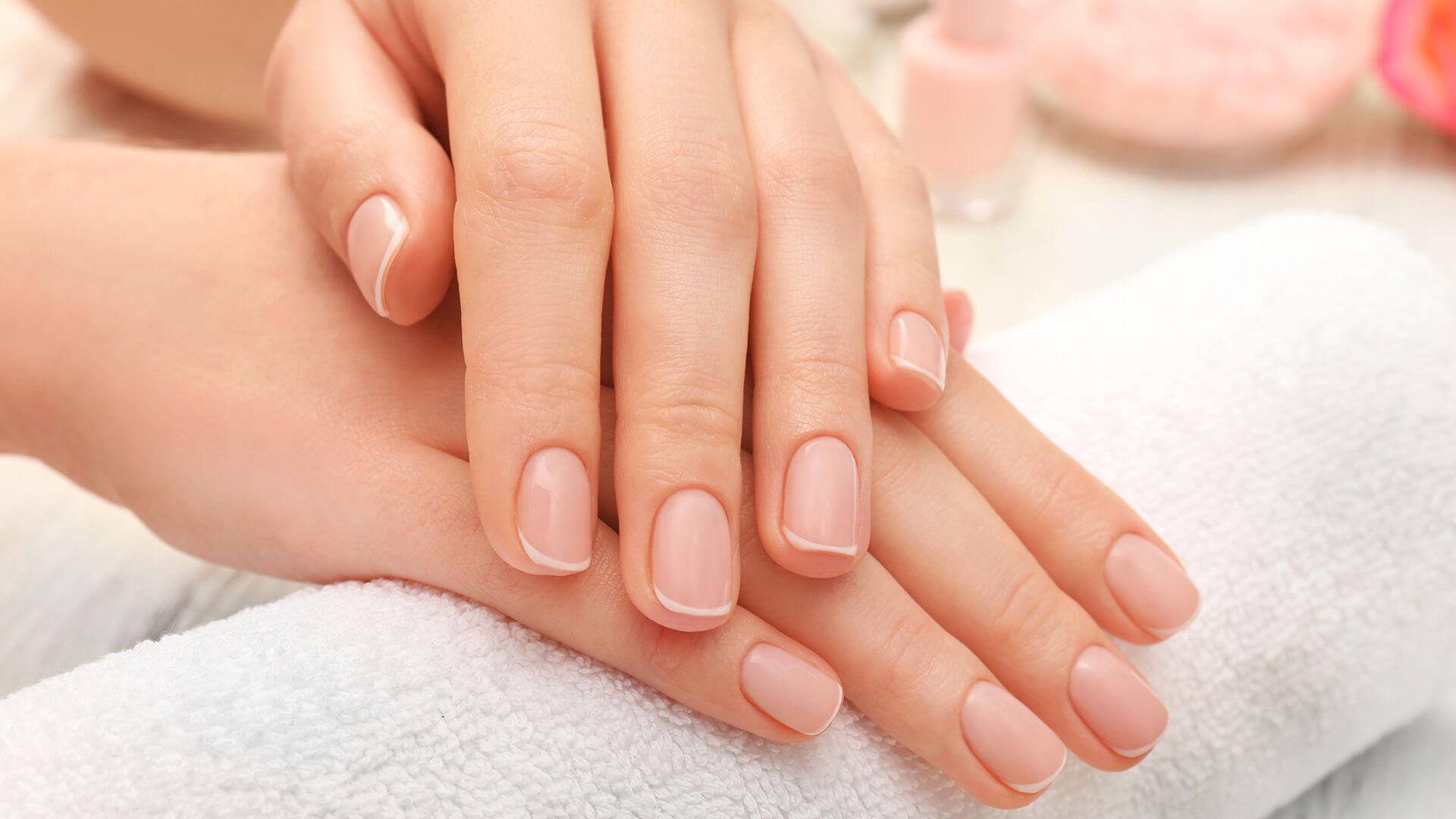
Exceptional work. This is very well-researched.